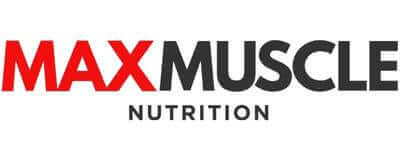Hey, Fitness Family
In the quest for optimal health and performance, dietary supplements have become a ubiquitous presence in the daily lives of millions. From vitamins and minerals to herbal extracts and performance enhancers, the variety of supplements available can be overwhelming. While these products promise numerous health benefits, understanding their safety and efficacy is crucial for informed decision-making. This guide aims to shed light on the key considerations surrounding dietary supplements, helping you navigate their complex world with confidence.
Understanding Dietary Supplements
Dietary supplements encompass a broad range of products designed to augment the diet. They can include vitamins, minerals, herbs, amino acids, enzymes, and more. Supplements are available in various forms, such as tablets, capsules, powders, and liquids, each claiming to offer specific health benefits.
The Role of Supplements
Supplements are intended to complement the diet, filling nutritional gaps or offering therapeutic benefits. However, they should not replace a balanced and varied diet, which is the foundation of good health.
Evaluating Safety
Regulatory Oversight
In many countries, dietary supplements are not regulated as strictly as pharmaceuticals. This can lead to variations in quality, potency, and purity among products. Understanding the regulatory framework in your region can help you make safer choices.
Quality and Purity
Opt for supplements from reputable manufacturers that adhere to good manufacturing practices (GMPs). Look for certifications from independent organizations that verify the product's quality and ingredient purity.
Potential Interactions and Side Effects
Be aware of possible interactions between supplements and medications or other supplements. Some supplements can have side effects, especially if taken in large doses or over extended periods.
Assessing Efficacy
Evidence-Based Benefits
Research the scientific evidence supporting a supplement's claimed benefits. Peer-reviewed studies and clinical trials provide the most reliable information on efficacy.
Personal Health Goals and Needs
Consider your individual health goals, dietary restrictions, and nutritional needs when selecting supplements. Consulting with healthcare professionals can provide personalized advice based on your health history and current conditions.
Making Informed Choices
Read Labels Carefully
Supplement labels can offer valuable information on ingredients, dosages, and usage instructions. Understanding how to read these labels can help you choose products that meet your needs.
Consult Healthcare Professionals
Before adding any supplement to your regimen, discuss it with a healthcare provider. They can offer guidance on the necessity, safety, and appropriate dosage of supplements considering your health status and goals.
Stay Informed
The dietary supplement industry is continuously evolving, with new products and research emerging regularly. Staying informed about the latest developments can help you make educated decisions about supplement use.
Conclusion
Navigating the world of dietary supplements requires a careful approach to ensure safety and efficacy. By prioritizing quality, seeking evidence-based products, and consulting healthcare professionals, you can make informed choices that support your health and wellness goals. Remember, supplements can be a valuable addition to your health regimen, but they are most effective when used as part of a holistic approach to well-being, including a nutritious diet, regular exercise, and adequate rest.
Mike Pringle
Max Muscle Sports Nutrition - Stone Mountain

